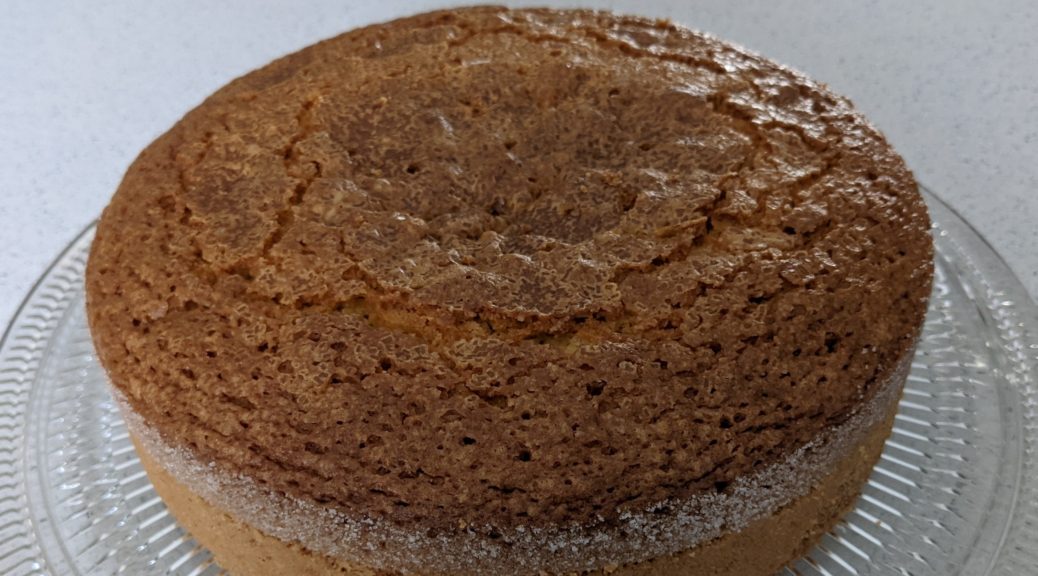January 27, 2021
“Can’t you come up with another name?”
That was my husband’s response when I said I was going to post a recipe for olive oil cake.
I suggested the Italian, Torta all’Olio d’Oliva. He wasn’t amused.
I guess he thinks the idea of olive oil in cake isn’t appetizing.
Nonetheless, the cake is a staple in regions surrounding the Mediterranean Sea. And a delicious one, at that!
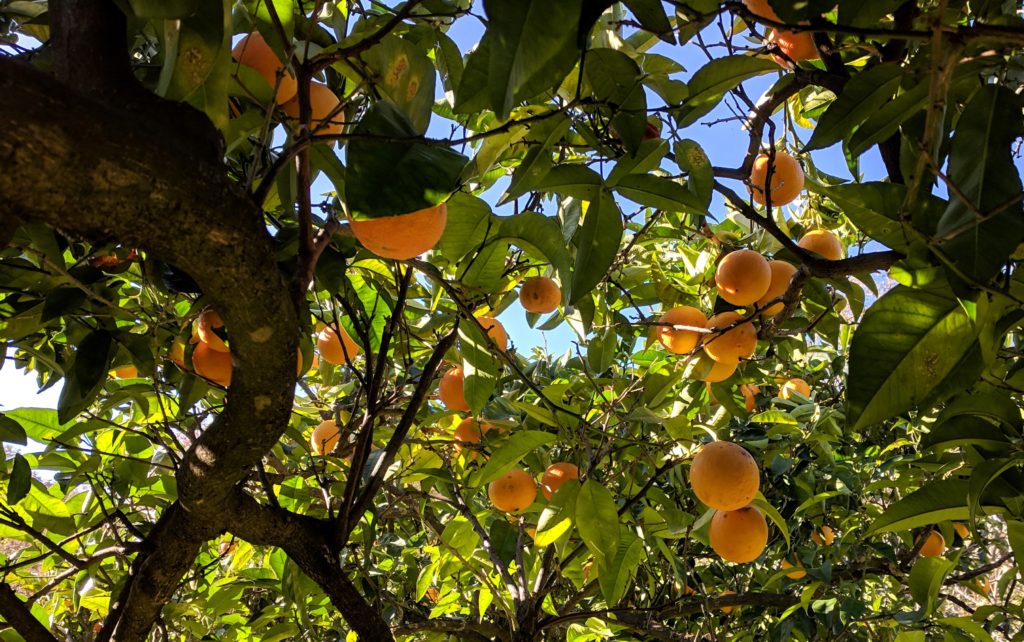
There are endless variations. Some are thin, barely an inch tall. Some are savory-sweet. Some barely reveal the presence of olive oil. Others proclaim the flavor of olive oil loudly. Some are good for snacking (with tea or coffee). And a few are actually good enough to serve for dessert with no embellishment.
Join our mailing list and you’ll never miss a recipe again!
Then there’s the olive oil to consider. Even among really good extra-virgin olive oils, and I do suggest you use really good extra-virgin olive oil, there is a range of flavor profiles. Words like grassy, bitter, peppery, fruity, and buttery come to mind.
Which you use will influence the flavor of the cake. All will be good but some may be more to your liking than others.
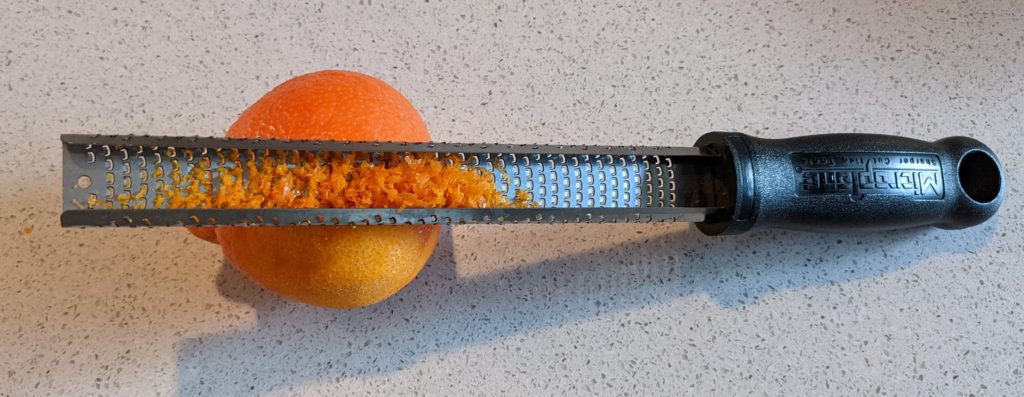
Honestly, though, does the world need another recipe for Torta all’Olio d’Oliva?
That’s a rhetorical question, right?
I mean, really, we wouldn’t ask if the world needed another recipe for chocolate cake. We’d just lean into it and make it happen.
If you’ve never had olive oil cake, and if you like to bake, I suggest giving this version a try. It has a moist crumb, crunchy top (from brown sugar), and a hint of orange from orange zest and orange liqueur.
Follow us on your social media platform of choice
This cake is suitable as dessert, not just snacking. It’s not going to be a spectacle of a dessert, like the Maraschino Cherry Cake I made from the first edition Betty Crocker Picture Cookbook, but I believe it will surprise many of your guests with just how good it is.
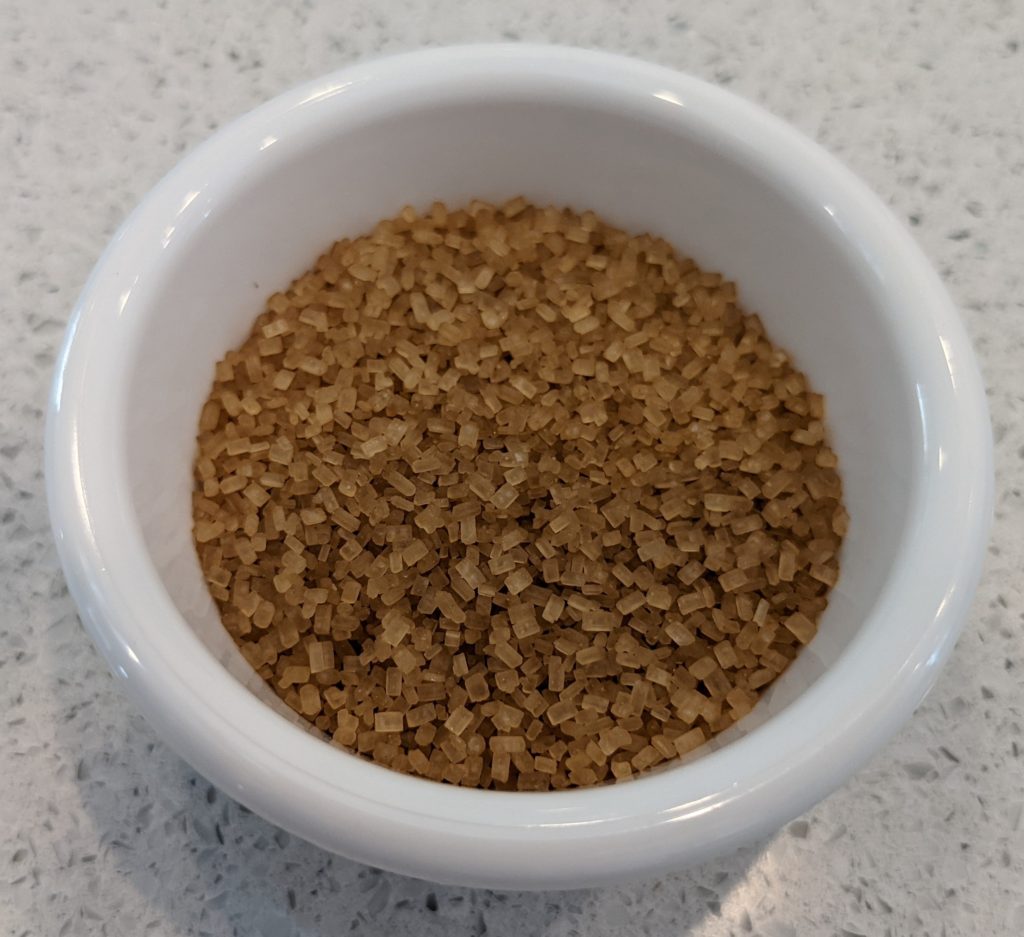
Now for the apology: I prefer to cook, and I DEFINITELY prefer to bake, using the metric system. It’s just so much easier to scale recipes up and down. Also, among professional bakers, most ingredients are weighed, even liquids. Without a scale that measures in fractions of a gram, however, it is not practical to weigh small amounts of ingredients like baking powder and salt. For these, I stick to teaspoons and tablespoons when I publish recipes though I often weigh these ingredients, too. Remember, though, that a standard teaspoon is now treated as if it were 5 ml, and a tablespoon 15 ml, even though both are just a smidge less, at least in America.
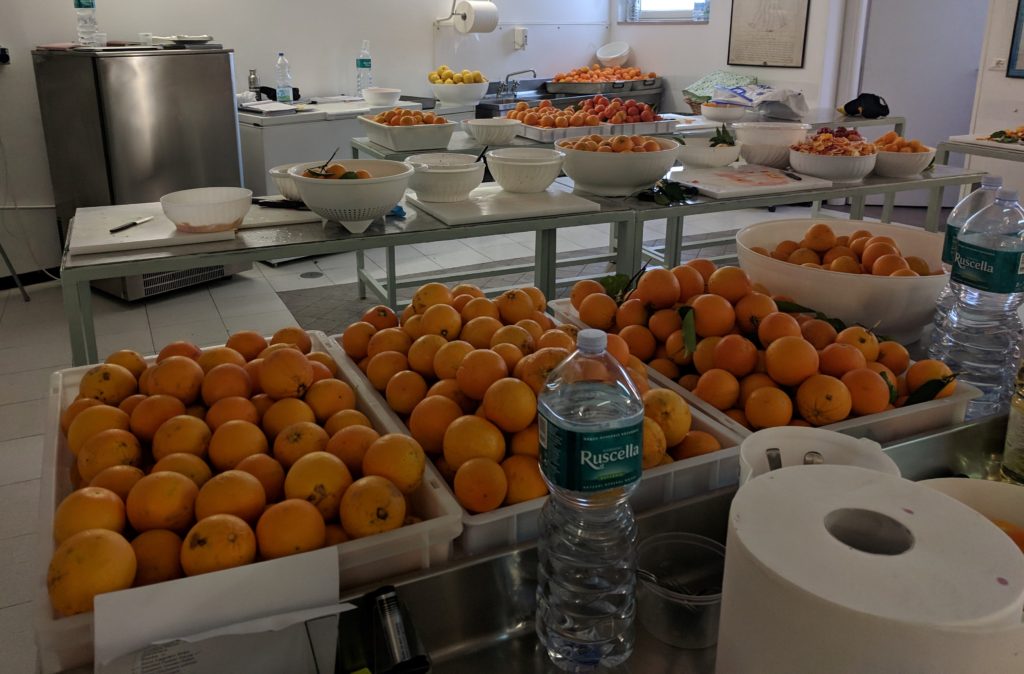
Although the recipe app will convert metric measures to non-metric, I’ll be happy to supply anyone with ingredient quantities in the typical volume-based American system upon request.
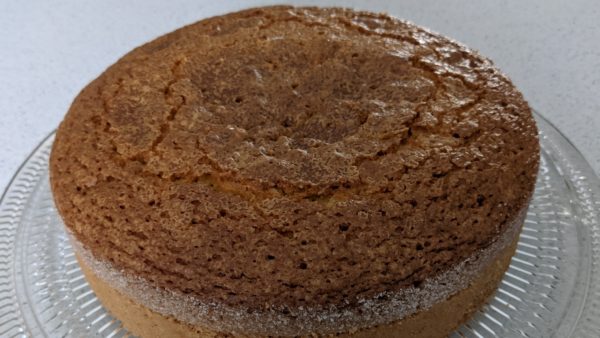
| Prep Time | 20 minutes |
| Cook Time | 60 minutes |
| Passive Time | 2 hours |
| Servings |
people
|
- 240 grams cake flour
- 52 grams fine cornmeal
- 2 teaspoons baking powder
- 1/2 teaspoon baking soda
- 1/4 teaspoon salt
- 3 tablespoons orange liqueur
- 3 tablespoons lemon juice freshly squeezed
- 2 teaspoons vanilla extract
- 230 grams granulated sugar plus more for pan
- 3 large eggs
- Grated zest of one orange
- 275 grams extra virgin olive oil plus extra
- crunchy brown sugar such as Turbinado or Italian Zuccero di Canna
Ingredients
|

|
- Oil a 9” springform pan with olive oil.
- Cover the bottom with parchment and oil the parchment.
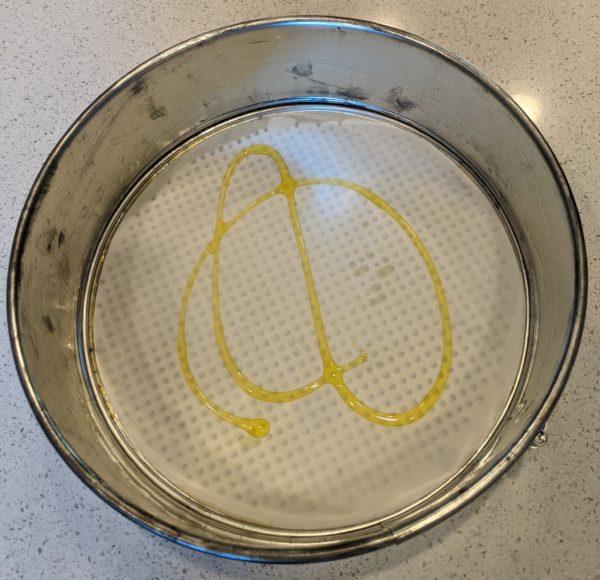
- Sprinkle the pan with sugar and dump out the excess. Even if you spread out the oil precisely it will tend to bead up, unlike butter, so there will be some sugar clumps. Don't be concerned.
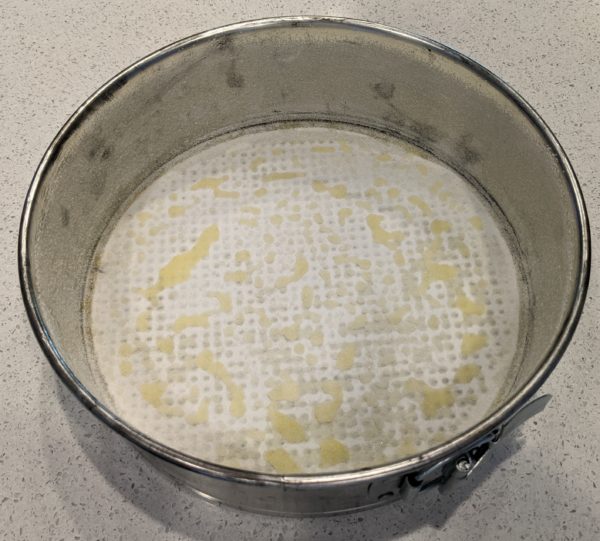
- Combine the flour, cornmeal, baking powder, baking soda and salt. Mix well and reserve.
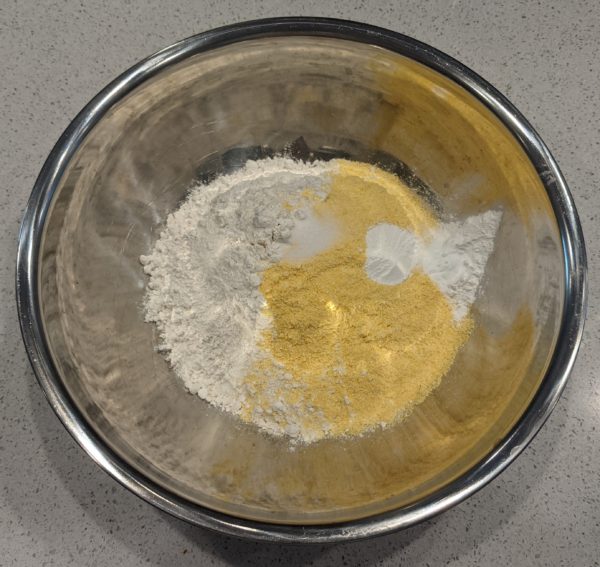
- Combine the liqueur, lemon juice and vanilla. Reserve.
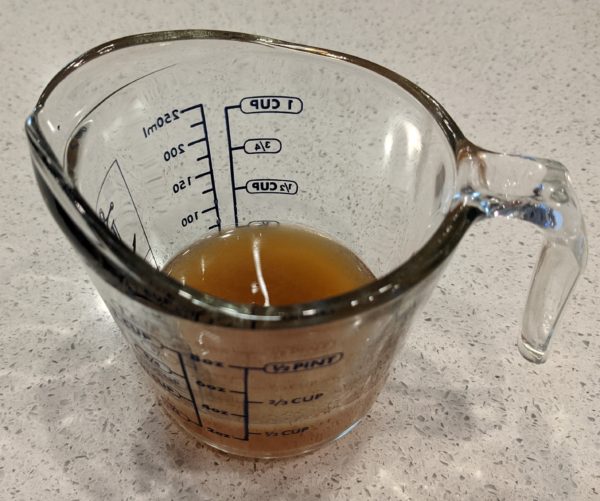
- In a planetary mixer, using the whisk, beat the sugar, eggs and orange zest on high speed until thick and ribbon-like, approximately 3-4 minutes.
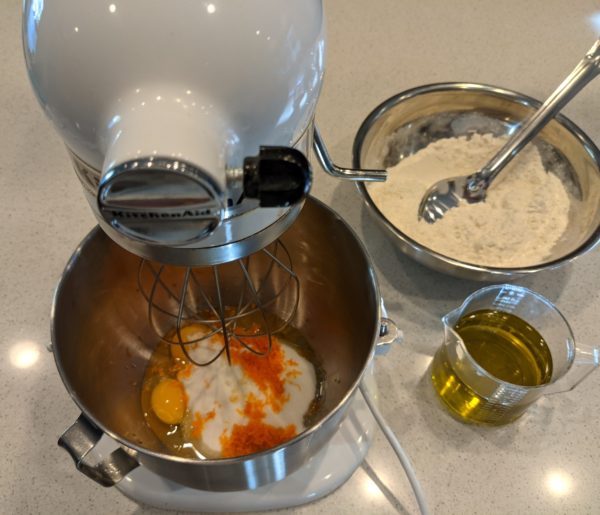
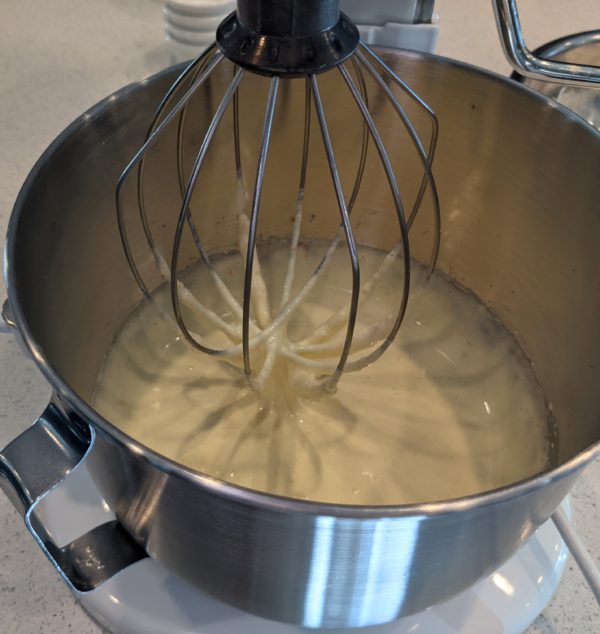
- Still on high speed, slowly drizzle in the olive oil and beat until fully incorporated.
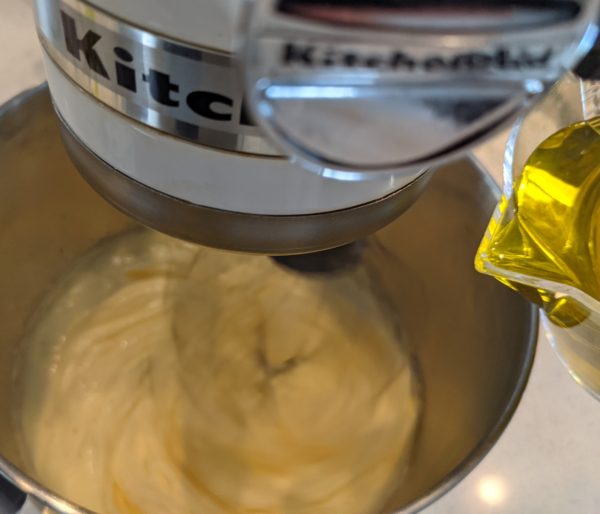
- The batter should get thicker.
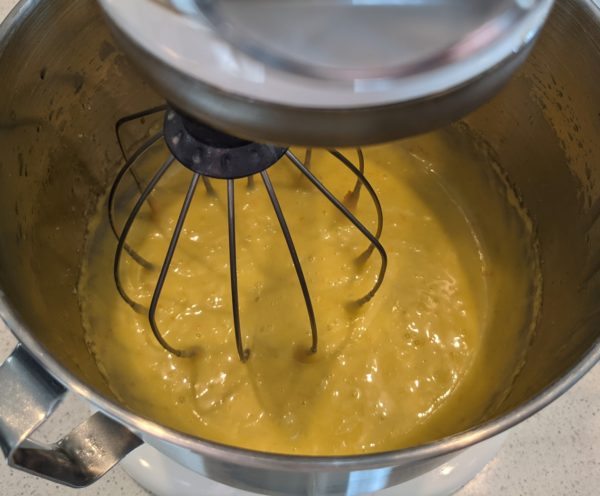
- On low speed, add the flour mixture, in three additions, alternating with the liquid mixture, in two additions, starting and ending with flour. Scrape the bowl once or twice to ensure an even mix.
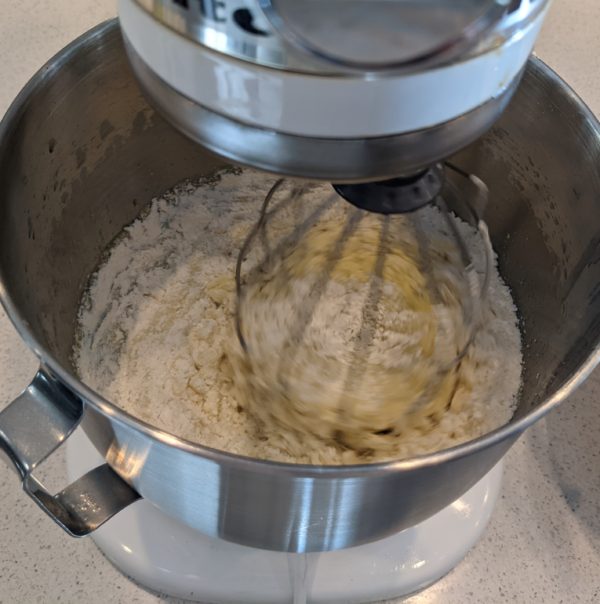
- Pour into the prepared springform pan.
- Sprinkle the top with brown sugar.
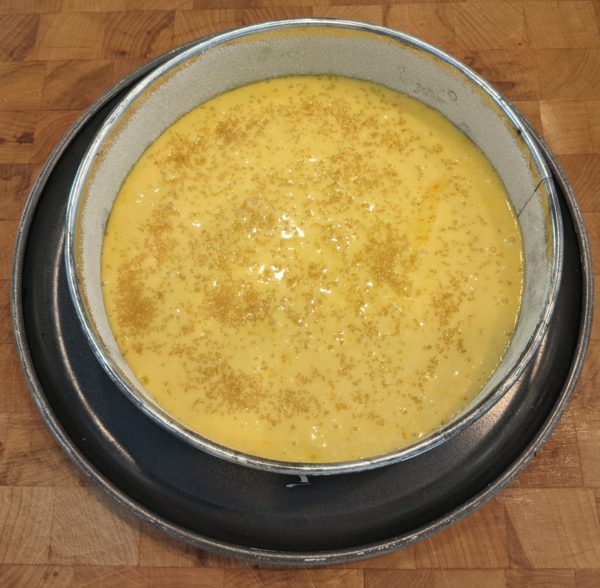
- Bake at 350°F until brown, firm on top, and a cake tester comes out clean; approximately 60 minutes. Do not underbake the cake or it will fall as it cools.
- Cool the cake for 15 minutes in the pan then poke the top all over with a skewer.
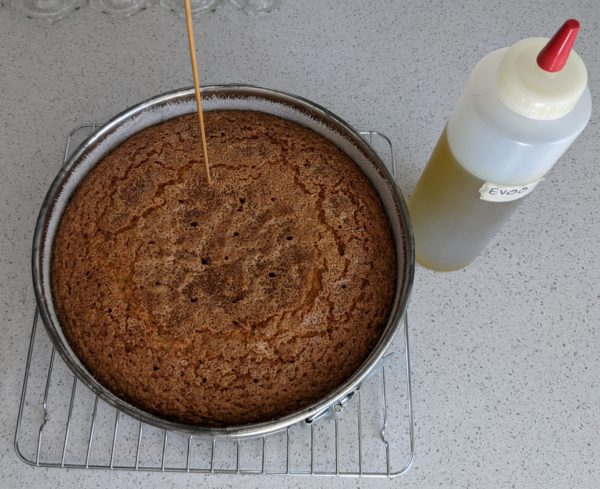
- Drizzle 2 tablespoons of olive oil on the cake and allow it to absorb.
- Remove the side of the pan and cool completely.
- When the cake is cool, remove it from the base of the springform pan. Wrap it in plastic and allow to rest at room temperature for at least one day, preferably two, before serving.
Copyright © 2021 by Villa Sentieri, LLC. All rights reserved.

